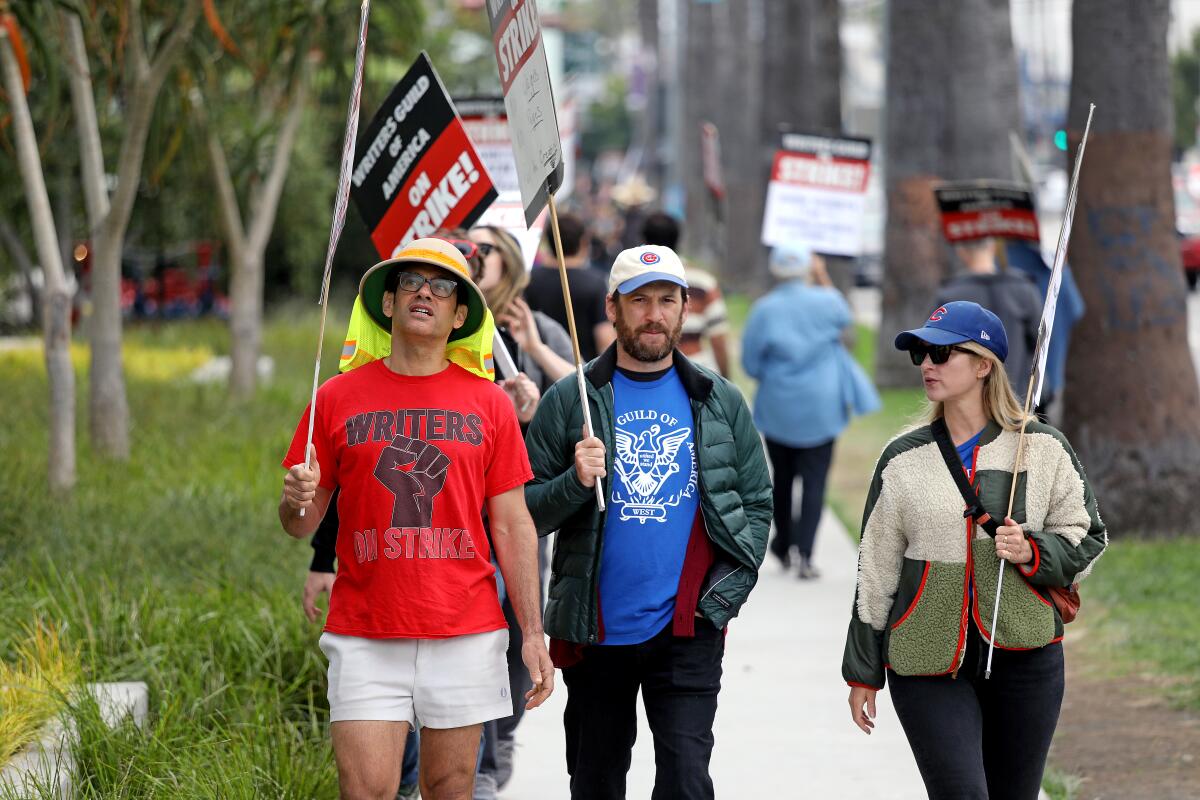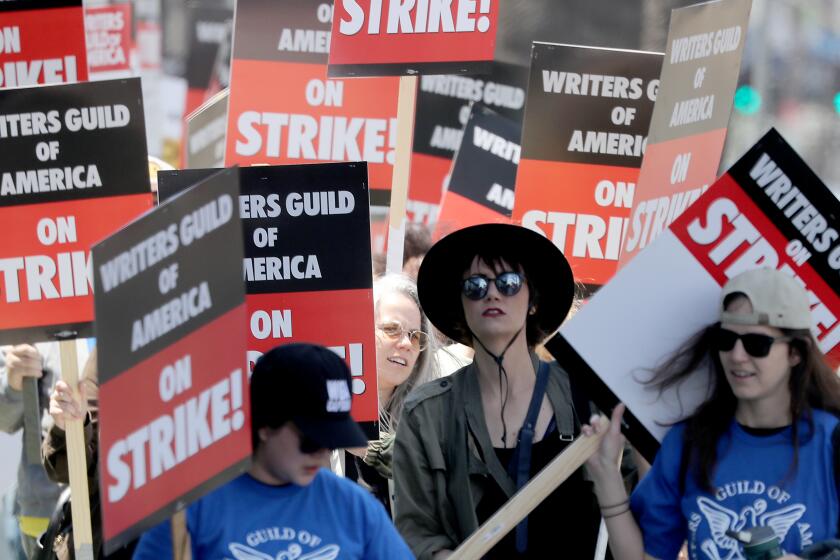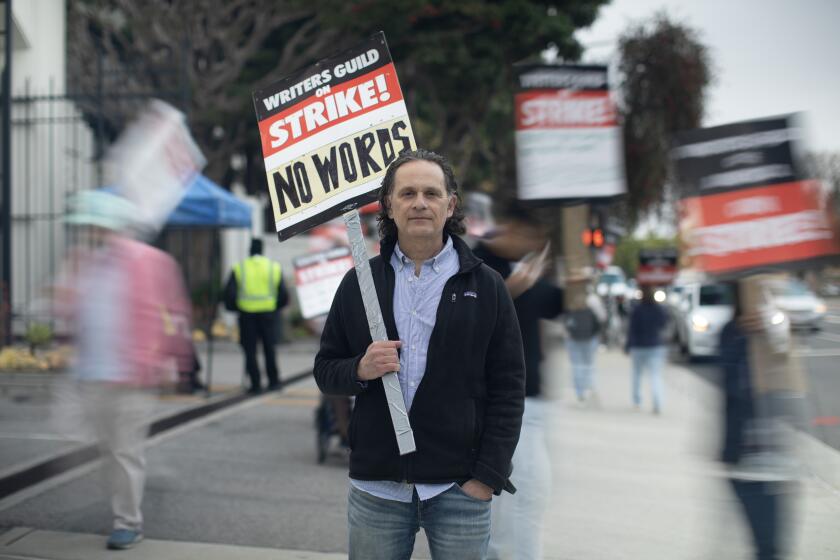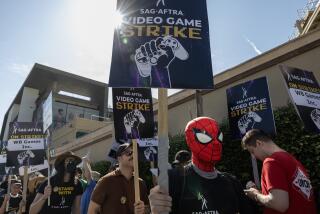SAG-AFTRA members approve strike authorization by overwhelming margin

Members of SAG-AFTRA have voted to strike if they can’t reach a deal with studios over a new contract by June 30, underscoring widening labor tensions across Hollywood.
The vote was approved by a 98% margin, the union said Monday night.
The endorsement gives the union more leverage in negotiations with studios that begin Wednesday on behalf of its 160,000 performers and broadcasters.
“This strike authorization means we enter our negotiations from a position of strength, so that we can deliver the deal our members want and deserve,” Duncan Crabtree-Ireland, SAG-AFTRA’s national executive director and chief negotiator, said in a statement.
“We are approaching these negotiations with the goal of achieving a new agreement that is beneficial to SAG-AFTRA members and the industry overall,” the Alliance of Motion Picture and Television Producers said in a statement.
The vote comes as writers enter their sixth week of a strike that has already destabilized the film and TV industry. An actors’ strike could further disrupt production activity.
Although a walkout is not guaranteed, the union’s decision to seek a strike authorization even before negotiations have begun is a sign of its resolve to press for improved pay and conditions.
“Without transformative change in the TV/Theatrical contracts, it will soon be unsustainable to pursue a career working under these conditions,” SAG-AFTRA said on its website.
Many members of the union have been marching alongside writers, who have been on strike since May 2.
The 2023 writers’ strike is over after the Writers Guild of America and the Alliance of Motion Picture and Television Producers reached a deal.
Like writers, actors have argued that their compensation has been undercut by inflation and the shift to streaming, which pays less in residuals (fees for re-aired shows) than traditional broadcast models.
Other contentious issues include artificial intelligence and the lack of regulations surrounding how actors’ voices and images are used.
Additionally, the union wants to bolster contributions to SAG-AFTRA’s health and pension plans and curb the practice of self-taped auditions, a trend that accelerated during the pandemic.
Studios and casting directors increasingly have required actors to submit video of themselves auditioning for roles, forcing them to take on audition costs that have typically been the responsibility of productions, the union has said.
The last time actors went on strike was in 2000 in a dispute over their commercials contract.
The previous actors’ strike against the major film and TV studios was in 1980.
Hollywood’s writers have gone on strike for the first time in 15 years amid a sea change in the way content is being distributed and creators are being compensated.
More to Read
Inside the business of entertainment
The Wide Shot brings you news, analysis and insights on everything from streaming wars to production — and what it all means for the future.
You may occasionally receive promotional content from the Los Angeles Times.













